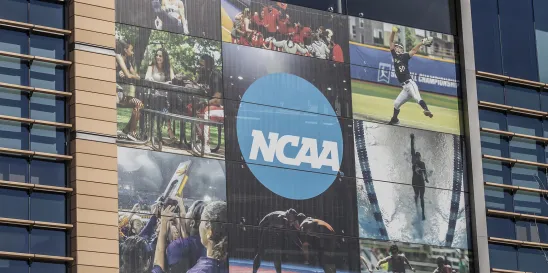The Division I Council unanimously voted to adopt new rules regarding name, image, and likeness (NIL) at the 2024 NCAA Convention in Phoenix last week. These new rules are primarily aimed at enhancing protections for student-athletes involved in NIL opportunities. The rules, which take effect August 1st, include four elements:
- Disclosure requirements: Student-athletes will now be required to disclose certain details of all NIL agreements exceeding $600, no later than 30 days after entering or signing the NIL agreement. Additionally, prospective student-athletes will also be required to disclose these details within 30 days of enrollment. This data will be deidentified and provided to the NCAA, who will then use the information to create a database so interested parties can better monitor NIL trends.
- Voluntary registration: In an effort to create a centralized location for all NIL service providers (i.e., agents, financial advisors, etc.), the NCAA will create a voluntary registration process for all providers seeking to work with student-athletes. The goal of this centralized portal is to help guide student-athletes and provide them with a list of credible providers as they engage in NIL opportunities and representation. The NCAA plans to develop a committee that will monitor this registration process and ensure the needs of student-athletes are met.
- Standardized contracts: The NCAA aims to provide student-athletes with education on NIL contractual obligations. Accordingly, the NCAA plans to develop a template contract and standard contract terms.
- Comprehensive NIL education: The NCAA also aims to develop ongoing education and resources for student athletes on NIL policies, rules, and best practices.
According to the vice chair of the Division I Student-Athlete Advisory Committee, these rules will give student-athletes more confidence as they seek NIL opportunities.
In addition to the aforementioned adopted proposal, the Division I Council also introduced additional proposals at the recommendation of the NIL Working Group and other stakeholders. Although these proposals would not take effect until at least April, after members and stakeholders are given a chance to provide feedback, the proposals include:
- School support of NIL activities: The proposals would remove national restrictions pertaining to the level of support a school, and their third-party service providers, may provide to student-athletes as they engage in NIL opportunities. Although schools would still not be able to compensate student-athletes for the use of their NIL, the schools would be permitted to identify potential NIL opportunities. Additionally, an entity associated and/or aligned with a school would also be subject to the same rules regarding NIL, and thus would also be prohibited from directly compensating student-athletes for NIL opportunities.
- A definition of “NIL entities”: As provided by the NCAA, the proposals would also define a “NIL entity” as “an individual, group of individuals, or any other entity (for example, a collective) organized to support the athletics interest of an NCAA school or group of schools by compensating student-athletes for NIL activities on behalf of itself or another third party.”
- School support of “NIL entities”: The proposals would both eliminate and add certain regulations regarding NIL entities. For instance, regulations regarding communications between schools and NIL entities, as it pertains to enrolled student-athletes, would be eliminated. However, the proposal would continue to prohibit a school from providing any financial support to NIL entities.
- Prohibitions regarding “prospects”:Under the proposal, an NIL entity would be prohibited from engaging in any form of communication with a prospect or potential transfer (or any individual associated with them) until they (i) sign a letter of intent, (ii) participate in summer activities or practice with the team, or (iii) enroll at the school and attend classes.
Both the proposed rules and the adopted rules represent an ongoing shift in the NCAA’s approach to NIL, with NCAA President Charlie Baker recently proposing rules that would permit Division I schools to pay student athletes.






 />i
/>i
